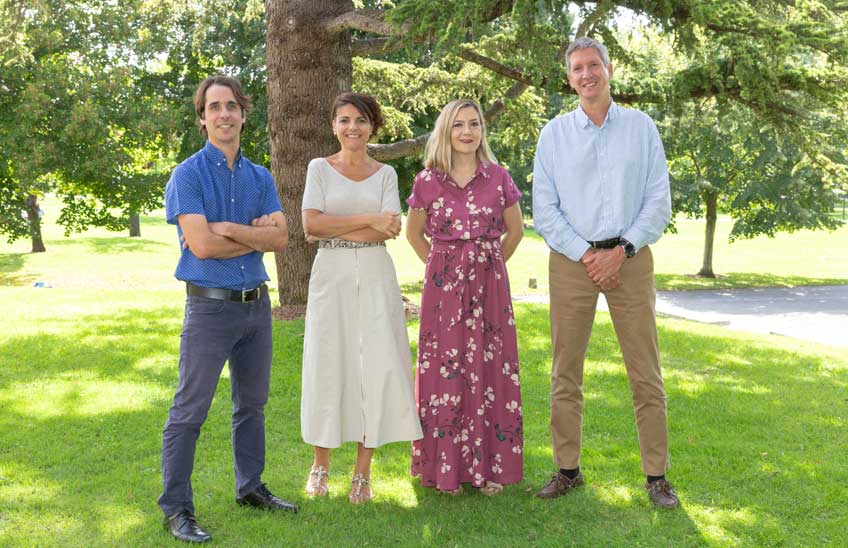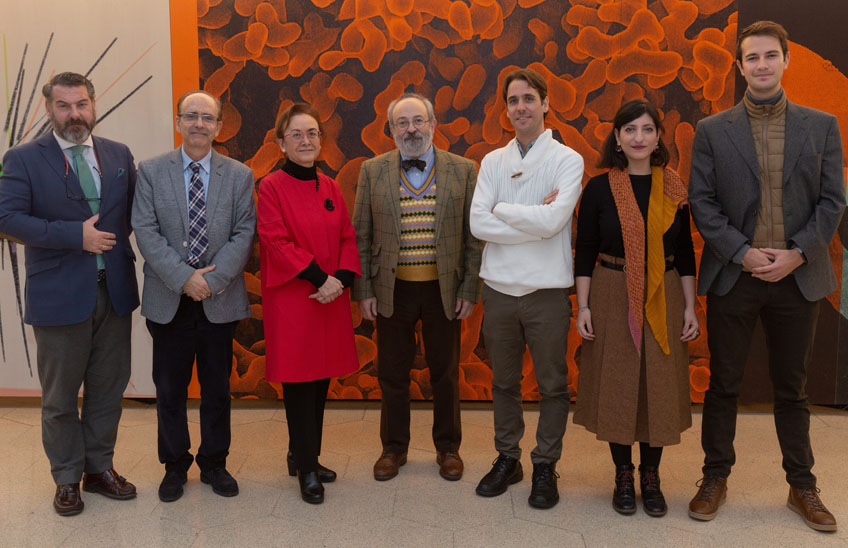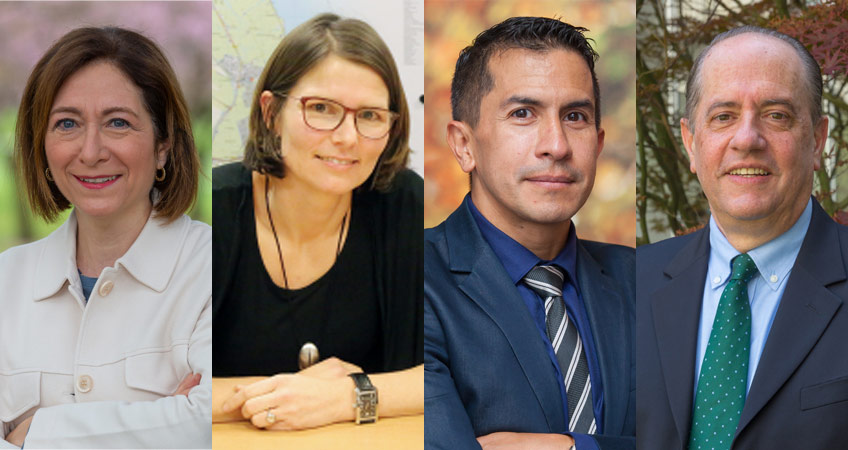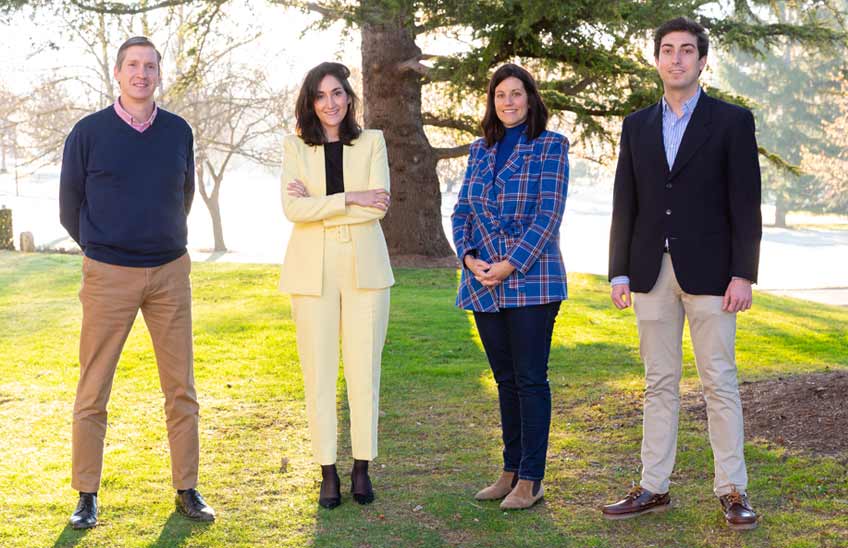Reading and writing to promote the coexistence of Maghrebi children in Fitero
University students have participated in a project to teach Spanish and support the socialization process of children and young people in the town of Navarra.

FotoCedida
/Elementary and high school students during a visit a la Library Services
20 | 12 | 2023
Beatriz Abad, a fourth year student of the Double Degree in Pedagogy and Education Primary Education at the University of Navarra, did not think twice when the teacher Carmen Urpí proposed her to participate in a project of cultural diversity at high school Juan de Palafox in Fitero. "In addition to having the opportunity to do summer internships, I wanted to learn firsthand how the children learned Spanish as a second language language and aspects related to living with an immigrant community as large as the one in Fitero," she explains.
In this Navarre town the main migrant profile is the Moroccan. Four students from the University of Navarra, Beatriz Abad, Nuria Ferrer, Saray Redín and Elena Osborne; and a student of exchange from the University of Waterloo (Canada), Terra Voth worked with the goal to promote the Spanish language and support the socialization process of North African children in infant, primary and secondary school, as well as to promote their inclusion in the culture and life of Fitero.
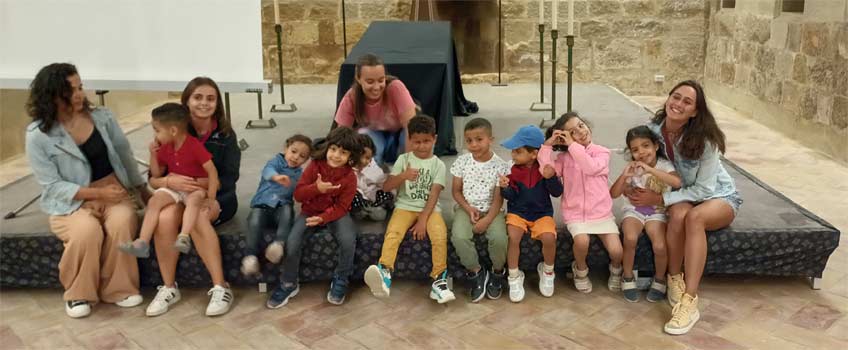
University of Navarra students Beatriz Abad and Nuria Ferrer with children's students and two social workers during a visit to the Monastery of Santa María La Real de Fitero ( visit ).
This project is part of the program 'Revitalizing Rural Heritage', promoted by the University of Navarra, Government of Navarra and La Caixa Foundation. And it arises from the relationship between the Fitero Town Council, specifically between Antonieta Berdonces, Intercultural Coexistence technician of the Town Council, and the professors of the University of Navarra Ruth Breeze, Ana María Fernández Vallejoand Sarali Gintsburg. These three researchers lead the project KINESIS, whose goal is to revitalize rural areas, stimulating entrepreneurship, social inclusion and promoting new educational, innovative and multidisciplinary approaches.
"The purpose of this initiative was to work on the attention to diversity from an inclusive approach , providing support in language Spanish, support educational general and training in study habits to students from different grades of the public high school Juan de Palafox of Fitero. Another goal was promote intercultural coexistence, through activities in which the student body has learned about aspects of the town with the financial aid of different members of the local community," explains Ruth Breeze.
Student Nuria Ferrer, like her classmate Beatriz Abad, was there during the month of July and part of August. They both prepared recreational activities such as reading and writing exercises, oral presentations or excursions to get to know the town. "Above all, they were activities to promote respect, companionship and good coexistence among the boys and girls," says the student.
These activities were coordinated by Alba Zubiría, a graduate in Early Childhood Education and Pedagogy from the University of Navarra, who also acted as link between the students, the center and the City Council. In addition, the students were tutored by the professor of School of Education and Psychology Carmen Urpí; Katya Palafox, tutor of practicum of Degree in Pedagogy; and Ruth Breeze, researcher of Institute for Culture and Society (ICS). "Participating in this project subject allows students to put on internship the contents provided by Degree in Pedagogy, didactics of language or attention to diversity," explains Ruth Breeze.
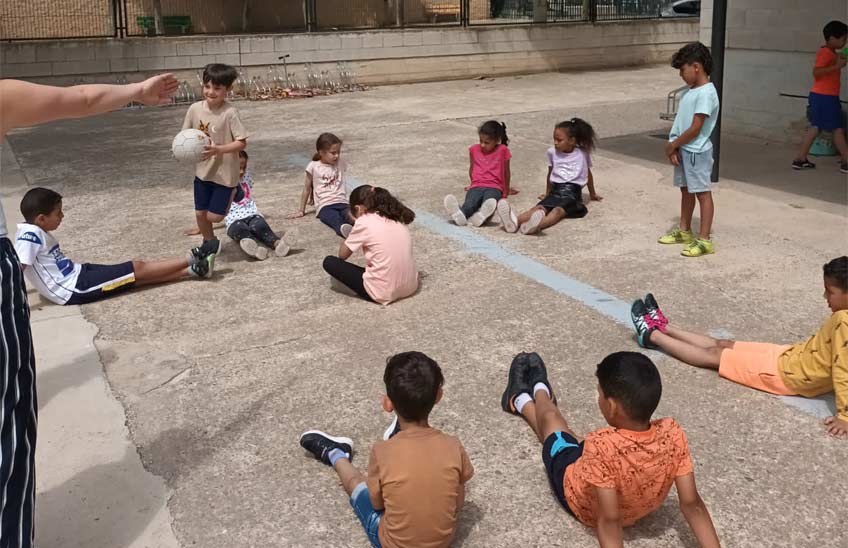
Playful activity with primary school students.
The students highlight how this experience has taken them out of their comfort zone and what challenges they have faced. For Beatriz, some of them have been related to emotionalmanagement , interpersonal conflicts and violence. "On the other hand, I have learned a lot of things about the Moroccan community, which has helped me to change many preconceived ideas that are not true," she says.
"At all times, we sought to show them healthy ways of interpersonal relationships, but it is true that there were many basic obstacles that sometimes prevented them from forging healthy friendships based on trust. In addition, the topic of language was also a challenge for me," adds her colleague Nuria. "I have learned a lot from this experience. I have managed to educate my gaze to levels I never thought I could, eliminating all subject of prejudices I might have had and seeing people for what they are, human beings, without putting culture in the middle, that is, without it overshadowing the true essence of the Education", she concludes.

